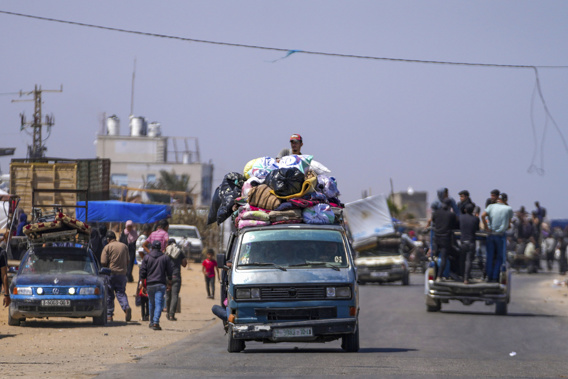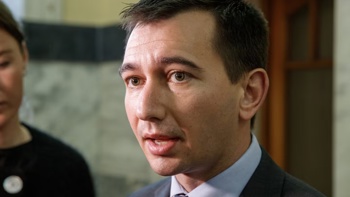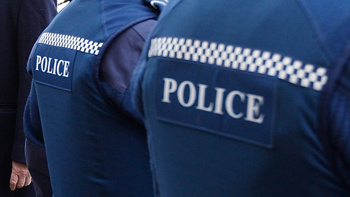
Tens of thousands of displaced and exhausted Palestinians have packed up their tents and other belongings and fled the southern city of Rafah for other parts of Gaza, according to the United Nations.
Israel has repeatedly threatened to invade Rafah, saying it's the last stronghold of Hamas militants. Some 1.3 million Palestinians — over half Gaza's population — had sought refuge in the city.
"Where are we supposed to go? Where is the world, that's just watching us?" said Ahmad Abed, who has an 8-month-old daughter. "It's like we're sheep."
Israeli Prime Minister Benjamin Netanyahu said Thursday that a U.S. threat to withhold some weapons would not deter Israel from expanding its offensive in Gaza. A limited Israeli operation earlier this week captured the Gaza side of Rafah's border crossing with Egypt, throwing humanitarian operations into crisis.
The death toll from the war in Gaza has soared to more than 34,500 people, according to local health officials, and caused vast destruction to apartments, hospitals, mosques and schools across several cities. The U.N. says northern Gaza is already in a state of "full-blown famine."
The war began Oct. 7 when Hamas attacked southern Israel, killing around 1,200 people, mostly civilians, and abducting about 250 others. Israel says militants still hold around 100 hostages and the remains of more than 30 others.
Some 80,000 Palestinians have fled Israeli shelling and airstrikes in Gaza's southern city of Rafah by Wednesday night, the United Nations says. The exodus is increasing by the hour and could be close to 100,000 by Thursday evening.
Some 1.3 million Palestinians — over half Gaza's population — had sought refuge in Rafah.
There's no safe place in the Gaza Strip, said U.N. deputy spokesman Farhan Haq. Speaking to reporters Thursday, he said frightened civilians are heading north to cities like Khan Younis and Deir al-Balah — both of which lack food, shelter and health care.
The U.N. World Food Program reports its main food warehouse for Gaza, which is in Rafah, is now inaccessible, Haq said, with only one bakery in the city still working: "Supplies of food and fuel are running out."
The U.N. agency for Palestinian refugees, known as UNRWA, reported that its facilities have almost no fuel Thursday and were rationing what is left, Haq said. If no fuel arrives, some hospitals could shut off their generators in three days, he said.
The U.N. spokesman said no aid or fuel has entered Gaza in recent days from Rafah, after Israeli forces took control of the border crossing this week. Israel said it has reopened the Kerem Shalom crossing, and Haq said the U.N. thinks some aid is entering Gaza.
However, he said, both Israel and Hamas are required under international humanitarian law to ensure that aid can be delivered to people in need. Currently this is almost impossible because of the security situation, Haq said.
"We continue to engage with all involved on the resumption of the entry of goods, including fuel," he said.
As a result of Israeli military activity in Rafah, the medical aid group Project HOPE said it closed its clinics and mobile medical points in Rafah on Thursday.
"Life in Rafah right now is a nightmare," Project HOPE's team leader in Gaza, Moses Kondowe, said in a statement. "There is bombing and shelling constantly, nearly every 10 minutes. Thousands of people are stuck here with nowhere to go. … The situation is unbearable."
-AP
Take your Radio, Podcasts and Music with you









